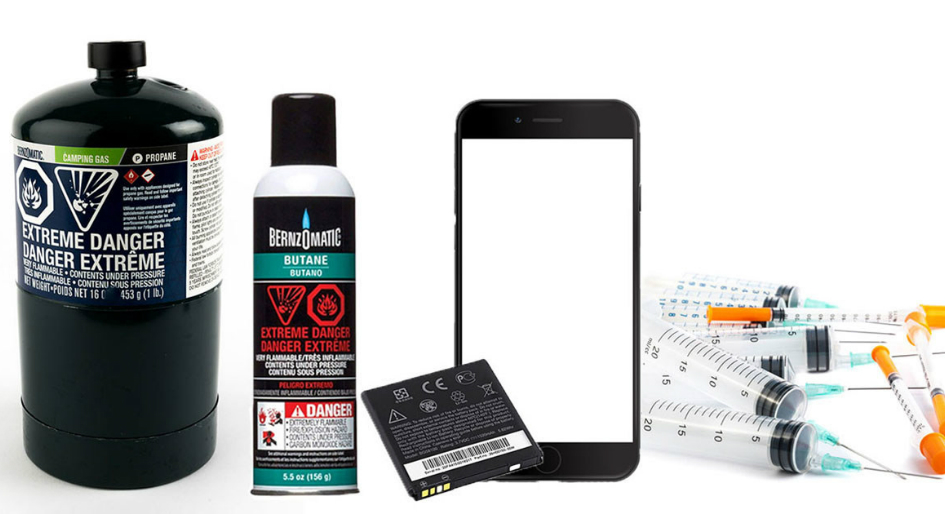Recycle BC is warning residents in British Columbia to pay attention to the hazardous materials that are being placed in the province’s residential packaging and paper recycling.
According to the organization, B.C.’s major recycling collectors and processors have seen seven fires in 2019, with several of them having endangered lives and forced the temporary closure of facilities. In addition across North America, the industry saw a 26 per cent increase in the number of fires in waste and recycling facilities in 2018, with 371 unique incidents reported between February 2018 and January 2019.
The risk of fires or explosions is especially high for material collection vehicles and receiving facilities due to the presence of significant amounts of paper. The combination of easily flammable material, plenty of oxygen and large amounts of material sorted into piles where sparks can smoulder for lengthy periods of time undetected make the presence of hazardous material especially precarious.
The following materials should not be included in the residential packaging and paper recycling system:
- Butane and propane canisters
- Batteries (especially lithium-ion batteries)
- Compressed gases
- Ammunition
- Knives
- Sharps
- Bear spray
“Earlier this month a resident put 58 rounds of live ammunition into their recycling,” explained David Lefebvre, director of public affairs for Recycle BC. “We need people to think before they put something that is potentially explosive and deadly into a recycling bin.”
“Hazardous materials have a significant impact on our staff. We are concerned about their safety and the potential for someone to be injured or worse,” explained Alisa Murray, Health and Safety Coordinator at Cascades Recovery.
“Sorting and recycling processes are fast-paced, with material constantly getting moved, compacted, and crushed,” said Oleg Vinokurov, industrial engineering manager at Green by Nature. “A recycling baler can develop pressures of hundreds of pounds per square inch. Compacted at these pressures, any compressed gas cylinder becomes a potential bomb for our employees.”
Residents should dispose of hazardous materials properly, which means many of these items should not only be kept out of the residential packaging and paper recycling system but also out of the waste system as well.








